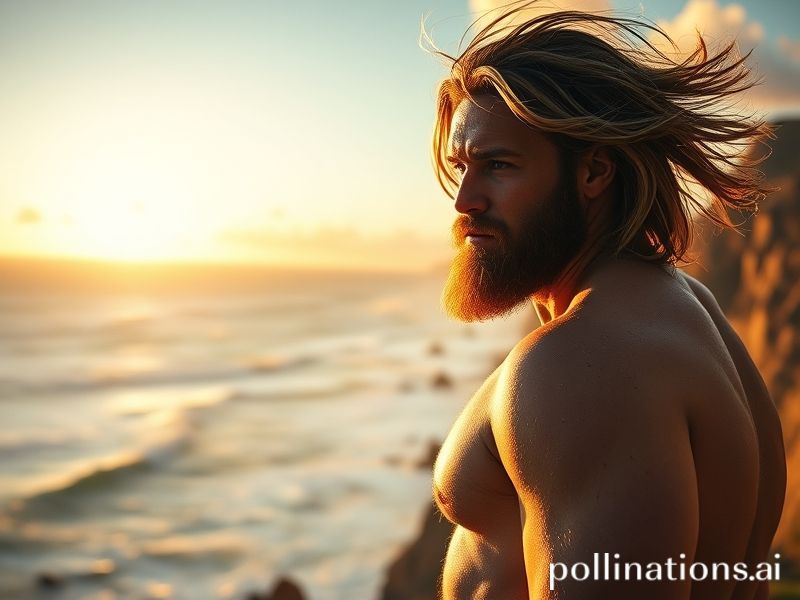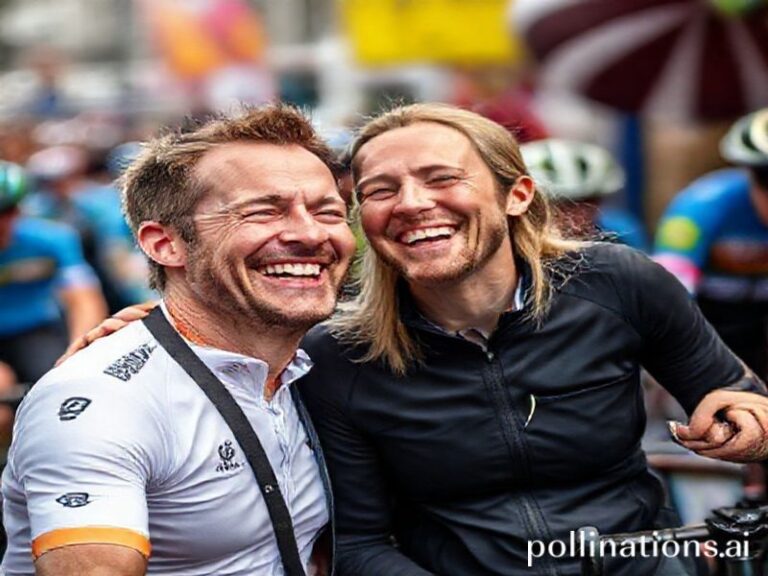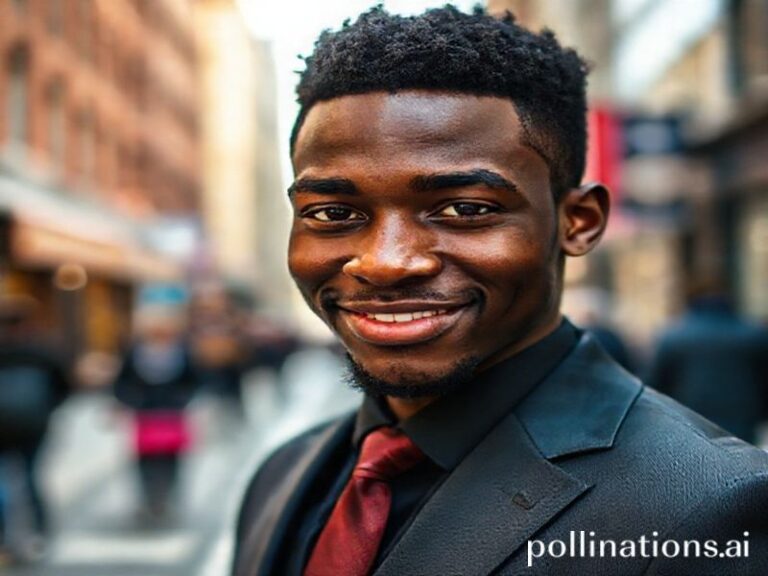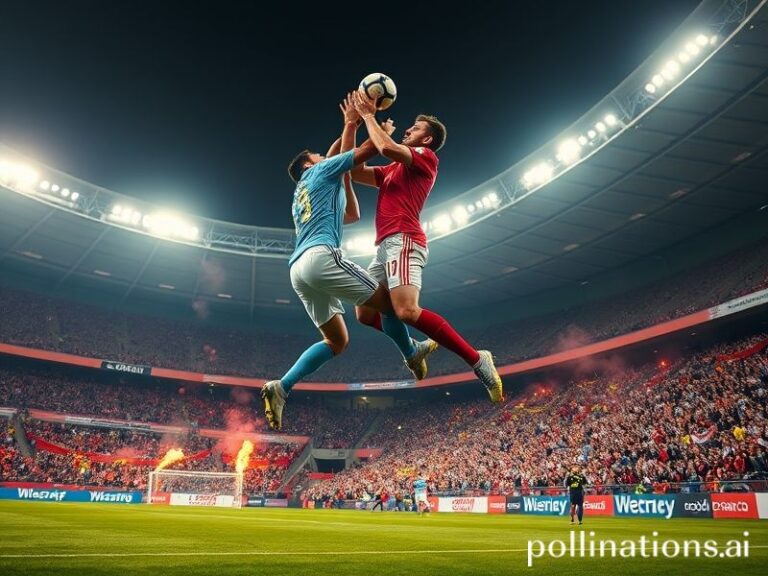Aquaman Goes Global: How Jason Momoa Became the UN’s Favorite Eco-Influencer (and the Planet’s Guiltiest Pleasure)
Jason Momoa and the Apocalypse Brand: How One Polynesian-American Bro Became a UN-Neutral Tourism Weapon
PARIS—It is a truth universally acknowledged that when the world is busy immolating itself—Ukraine’s grid flickering like a faulty lava lamp, the Amazon auditioning for a charcoal commercial, half of Africa negotiating debt terms with a photocopier—a six-foot-five Hawaiian with eyeliner and trident somehow becomes the soft-power equivalent of duct tape. Enter Jason Momoa, the man who turned “Aquaman” from punchline to passport stamp and now moonlights as the United Nations Environment Programme’s Patron of Life Below Water, a title that sounds suspiciously like a rejected Bond subplot.
In Brussels, officials sipping €9 espressos whisper that Momoa’s recent eco-tour through Mediterranean waste-dumping hotspots did more for EU recycling quotas than any white paper drafted by a committee named after a Greek demigod. Meanwhile, tourism boards from Malta to Micronesia have discovered that a single Instagram story of Momoa hoisting a biodegradable surfboard can spike flight searches 400 percent, proving once again that humanity will happily contemplate carbon offsets if the brochure features a shirtless demigod. The irony, of course, is delicious: we are willing to save the planet only if the poster boy looks like he could also flip a Humvee for sport.
From a geopolitical vantage, Momoa operates like a benevolent privateer. When he crash-landed in Tonga last spring to promote reef-safe sunscreen, Chinese and Australian envoys both scrambled to host the after-party, each hoping to bask in reflected Pacific cool while pretending not to notice the other’s spy drone overhead. The event ended with the Tongan PM receiving a Harley-Davidson wrapped in tapa cloth, the bike promptly impounded because nobody could locate import paperwork written in Tongan, English, or Hollywood.
In Latin America, indigenous groups have started invoking “Momoa clauses” in negotiations with lithium miners: if the extraction scars exceed a certain acreage, the company must fund a Momoa-fronted documentary and fly him in for ceremonial apologies. Journalists call it “greenwashing with abs”; the communities call it leverage. Either way, streaming services are green-lighting twelve-part series faster than you can say “post-colonial guilt.”
Yet the most surreal chapter unfolded at COP28 in Dubai, where Momoa materialized barefoot in a repurposed keffiyeh, carrying a reusable water flask carved from a decommissioned missile casing—a gift, he deadpanned, “from a Northrop Grumman intern with a conscience.” Delegates from petrostates queued for selfies like teenagers at Comic-Con, conveniently forgetting their own methane leaks back home. Analysts later noted a 0.3 percent dip in regional oil futures the next morning, attributed by Bloomberg to “actor-related sentiment volatility,” which is finance-speak for “we have no idea either.”
The darker joke is that Momoa’s brand of activism is perfectly calibrated for the age of performative sincerity. He can denounce deep-sea mining on Monday and still sell you limited-edition Adidas made from recycled fishnets on Tuesday—nets that were, until last year, busy strangling turtles. Consumers soothe themselves with the thought that buying the shoe funds ocean clean-ups, a moral arithmetic that would make medieval indulgence salesmen blush. Meanwhile, Momoa pockets enough to keep funding his own indie projects, ensuring he never has to star in “Fast & Furious 19: Ocean Drift.”
Still, one has to admire the efficiency. In an era when multilateral diplomacy moves at the speed of a hungover sloth, Momoa’s baritone “aloha” travels faster than sanctions, requires no translation, and comes with better lighting. If the planet’s fate hinges on charismatic megafauna, at least this one can read a teleprompter.
So here we are: a single human billboard surfing the zeitgeist between savior and sales pitch, reminding us that the end of the world will be televised, monetized, and probably co-sponsored by a hydration company. And should the seas finally reclaim us, future archaeologists will find a bronze statue of Jason Momoa standing atop a mountain of branded water bottles, trident raised in eternal defiance—or perhaps just good PR. Either way, the tide keeps coming, and the merch drops next Tuesday.







